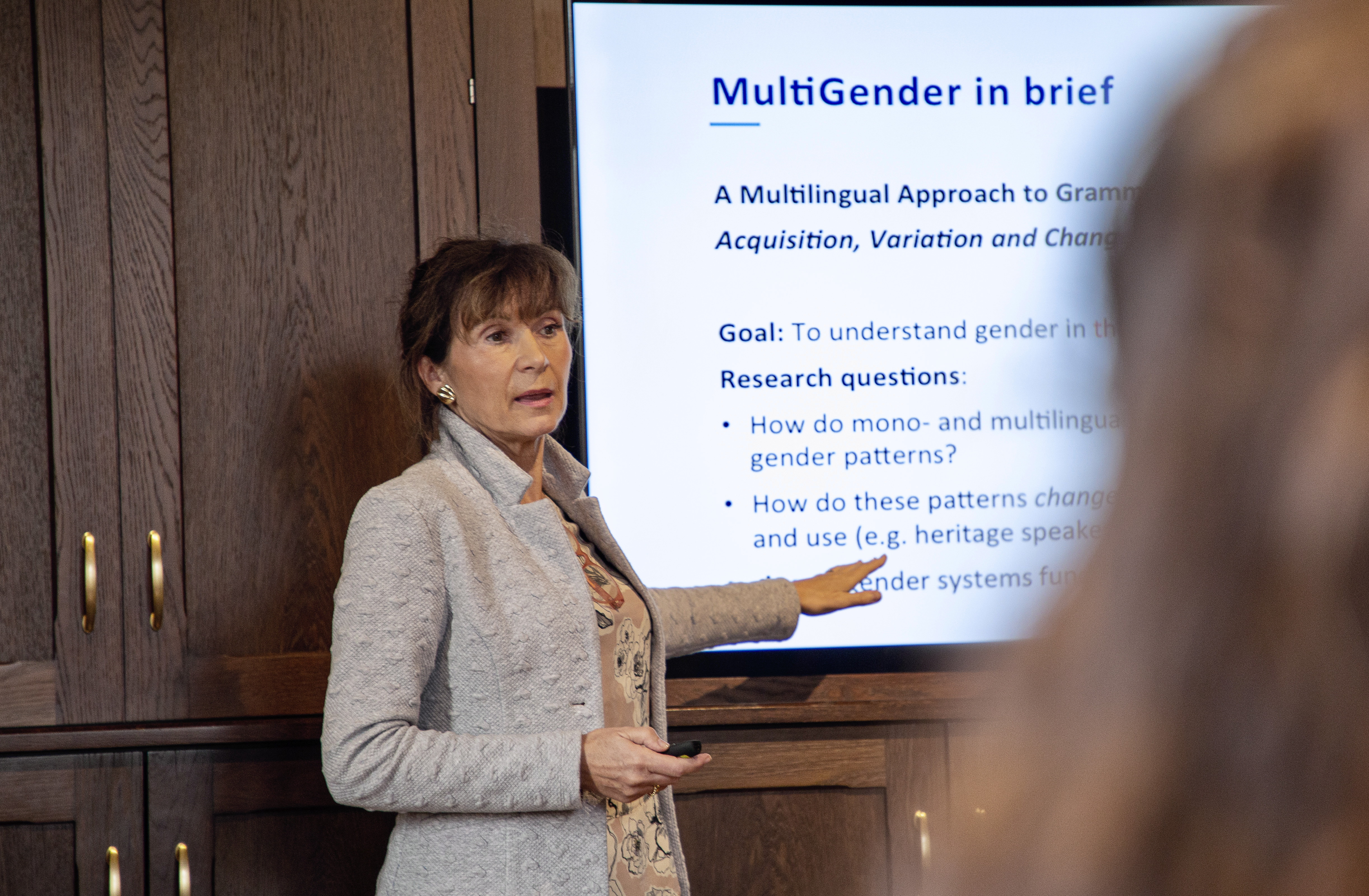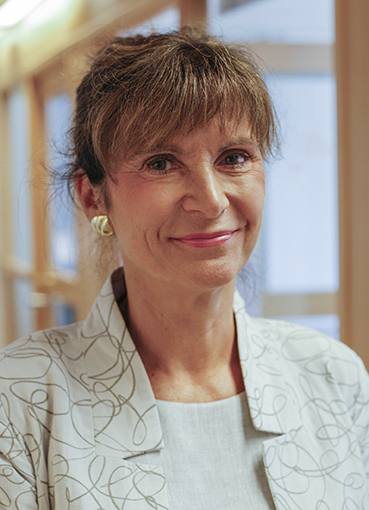Alumni Spotlight: Marit Westergaard

Westergaard led the CAS project MultiGender: A Multilingual Approach to Grammatical Gender together with Terje Lohndal, professor of English linguistics at the Norwegian University of Science and Technology (NTNU), during the 2019/2020 academic year.
‘The MultiGender project invited scholars from all over the world who work on grammatical gender in numerous languages from different theoretical perspectives,’ Westergaard said. ‘The variation across gender systems is extensive.’
Unfortunately, the project group’s stay at CAS ended abruptly because of the coronavirus lockdown in March 2020, three and a half months before the end of the academic year. We spoke with Westergaard about how the project has evolved after having to leave the Centre before planned and what the scholars have discovered so far.
- Read more: Meet the project: Do we really need grammatical gender? - CAS
- Read more: Why do some words have gender? - CAS
Some of the core questions your project planned to study when starting up at CAS was how the use of grammatical gender varies across dialects, languages and multilingual individuals, and how grammatical gender is acquired and may change over time. What have you found out so far, and is there something that has surprised you?


The MultiGender project invited scholars from all over the world who work on grammatical gender in numerous languages from different theoretical perspectives. The variation across gender systems is extensive.
Nevertheless, gender assignment to individual nouns is typically dependent on, one, the formal properties of a noun (e.g. nouns ending in -a in Italian are feminine, la macchina – ‘the car’), two, meaning (e.g. nouns referring to male beings are masculine, papa – ‘daddy’ in Russian, which takes masculine agreement, even though its form suggests that it should be feminine), or, three, arbitrary assignment, which is based on neither semantics nor formal properties (as in Norwegian).
The co-leader of MultiGender, Terje Lohndal, and I wanted to explore the strength of these factors and proposed a bold hypothesis for the project, namely that formal properties are more important than semantics for grammatical gender. Our MultiGender guest scholars represented a diversity of views on this matter, which was important for our discussions, clarified the arguments and improved our papers.
Not surprisingly, we did not reach any consensus on the main hypothesis. Rather, we identified various challenges for the hypothesis, either phenomena in individual languages or alternative analyses of data. Overall, Terje and I think it is fair to say that we have found additional support for our hypothesis (especially in child language data), but we have also gained a better understanding of the role that semantics plays in gender assignment.
Your stay at CAS during the 2019/2020 academic year ended abruptly because of the pandemic lockdown. How did the research project develop after having to leave the Centre in March 2020?
I must be honest and say that the lockdown was a major blow to the MultiGender project, as most of our guest researchers had to return to their home countries and a number of new researchers that were scheduled to arrive in the spring of 2020 were never allowed to enter Norway.
For some weeks after March 12, we met with many of them on Zoom. But CAS is all about bringing people together – away from their daily routines and duties. Thus, meeting online for an hour or two per week could in no way compensate for what was lost when the Centre was closed. We also had to cancel a large workshop planned for April 2020 with invited guests from all over the world, as well as the one-week final MultiGender event for all 25 participants, which was planned for late May.
Nevertheless, many of the ideas discussed in the MultiGender project have been disseminated in numerous publications, most of them in international journals. Additionally, several papers on acquisition, variation and change in the Norwegian gender system will be published in a collection of articles in a special issue of Norsk Lingvistisk Tidsskrift in 2022.
The MultiGender collaboration has also been further developed in other new projects, most notably GenVAC (Grammatical Gender in Norwegian Dialects: Variation, Acquisition & Change), a research project at NTNU funded by the Research Council of Norway for 2021-2024 with Terje Lohndal as the PI, and the AcqVA Aurora Center (Acquisition, Variation & Attrition: The Dynamic Nature of Languages in the Mind) at UiT (generously funded for five years, 2020-2024), where I am the director.
Furthermore, Terje and I spent the last months of MultiGender writing a proposal for a joint UiT/NTNU Centre of Excellence. In June this year we were notified that our proposal, called Center for Language, Brain & Learning (C-LaBL), was selected to the second round of evaluation, and we just submitted the new, extended proposal a few weeks ago.
Your project was given extra time to carry out the events that had to be cancelled because of the pandemic restrictions. What activities are you planning?
As mentioned earlier, we had to cancel two large events in the spring of 2020, and we quickly decided to combine the two and postpone for a year, until May 2021. The event has now been postponed three times and is currently scheduled to take place in June 2022, at Engø Gård in Tjøme, Norway.
We are grateful to CAS that the project funding has been extended for almost two years, and we really hope that it will be possible to bring together about 30 scholars from all over the world next spring.
What do you remember best from your time at CAS?
When I think about the time we spent at CAS, what stands out the most is the friendly and welcoming atmosphere in the building. The leadership and administration at CAS are doing a fabulous job in facilitating outstanding research by providing excellent conditions and relieving us of many practical tasks – which, I would like to add, is a very different experience from daily life at a university. At CAS, you feel very lucky to be there.
What advice would you give to future CAS project leaders?
Many previous project leaders have expressed that they have enjoyed the quiet time at CAS, finding inspiration away from the busy life at the university. This was probably easy to do a decade or two ago, but with the current situation with massive amounts of electronic communication and constant invitations to online meetings and conferences, the quiet time at CAS can quickly become an illusion.
My advice to future project leaders would be to make a considerable effort at the beginning of the year to seriously reduce the involvement in activities outside of CAS.
- This interview was first published in our monthly newsletter. Sign up here.